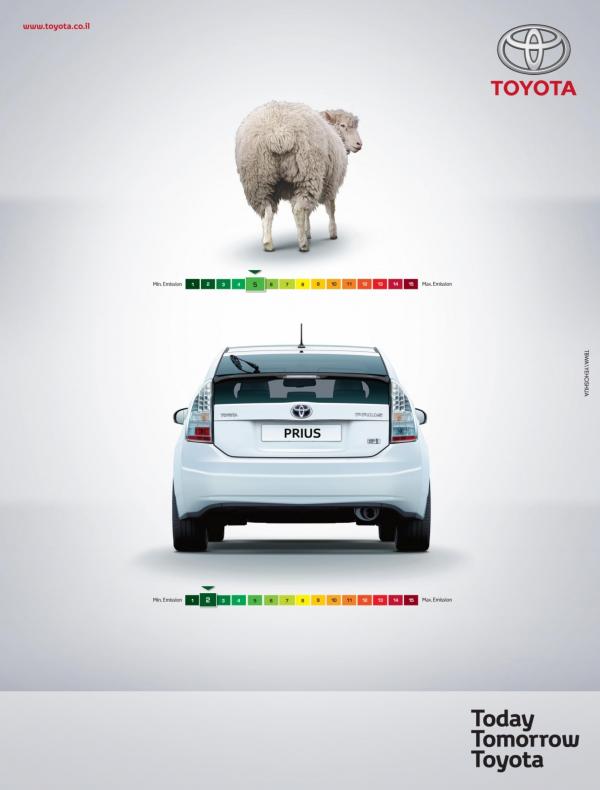
Measuring Emissions – Toyota Prius vs. Sheep
The technology is whiz bang…but the end result could end up alienating even more of the audience.
Understanding ROI on print ads has always been a challenge, and many in our industry cite that as one reason why digital advertising burst onto the scene the way it did. Now Hearst is rolling out a new way to bridge the gap between print ads and measurable ROI, targeting their print readers and following them with digital ads, notes to Lucia Moses in Digiday.
“It’s doing so with a new campaign for Toyota’s new Prius, which marks the first time Hearst is targeting its print readers and then following them with digital ads, said Cameron Connors, who orchestrated the campaign as publisher and chief revenue officer of Hearst’s Popular Mechanics,” Moses writes.
“This is something that traditional print publishers, often bogged down by old data-collection systems, have struggled to do,” Moses says, before adding that “Publishers are also aware that consumers might not want their personal information being used to target them with ads.”
That may be an understatement.
I completely understand Hearst’s desire to get a better handle on their ROI. “Toyota wanted to see how people are consuming print content, but also, did they follow [the brands] in digital,” said Connors.
They aren’t the only big publishing brand to pursue this idea, as Moses notes.
“Other publishers have been making moves to improve their targeting abilities. Time Inc. earlier this year bought Viant to create an ad-targeting giant,” she writes.
The challenge will be to do this in a way that doesn’t alienate the print reader. The ad blocking outrage demonstrated loud and clear that consumers do not want to be hounded by brands on digital platforms, and the industry has been slow to get that. It seems they are working harder on ways to block ad blocking than on fixing their broken digital paradigm and employing the wisdom of print in their advertising model.
We’re all for using big data to better under your customers; just be careful in how you use all that good info you collect. We don’t want to drive the print readers away through digital ads.
